November 24 - 28, 2025
Adelaide, Australia
Dec 11-13, 2025
Hong Kong, China
ISCB Official Event
December 6 - 8, 2025
Northeastern University, USA
Jan 3 - 7, 2026
Big Island, Hawai'i
April 21-22, 2026
Cambridge, UK
May 26 - 29, 2026
Thessaloniki, Greece
May 27-29, 2026
Toronto, Ontario, Canada
ISCB Official Event
July 12 - 16, 2026
Washington, D.C., United States
ISCB Flagship Event
August 1 - September 9, 2026
Geneva, Switzerland
ISCB’s Annual Flagship Meeting
Support the society while achieving your marketing goals
Become a ISCB collaborative conference, learn more here
Regional, topical, worldwide - your platform to present science
dedicated to facilitating development for students and young researchers
The ISCB Affiliates program is designed to forge links between ISCB and regional non-profit membership groups, centers, institutes and networks that involve researchers from various institutions and/or organizations within a defined geographic region involved in the advancement of bioinformatics. Such groups have regular meetings either in person or online, and an organizing body in the form of a board of directors or steering committee. If you are interested in affiliating your regional membership group, center, institute or network with ISCB, please review these guidelines (.pdf) and send your exploratory questions to Diane E. Kovats, ISCB Chief Executive Officer (This email address is being protected from spambots. You need JavaScript enabled to view it.). For information about the Affilliates Committee click here.
Topically-focused collaborative communities
Connect with ISCB worldwide
Environmental Sustainability Effort
ISCB is committed to creating a safe, inclusive, and equal environment for everyone
Resource library for education and training materials
Search jobs, find talent
Science at the click of the mouse, recorded talks
High-quality research devoted to computer-assisted analysis of biological data
Latest research and publications
Certifying Quality in Computational Biology Education
Latest updates from ISCB
Highlighting Society events, programs, and achievements
Celebrating scientific achievement and innovation
Honoring our distinguished researchers
Recognizing contributions and achievements
Center for science, collaboration, and training
links within this page: Kate Adamala | Aly Azeem Khan | Xihong Lin | Layla Oesper | Jian Zhou
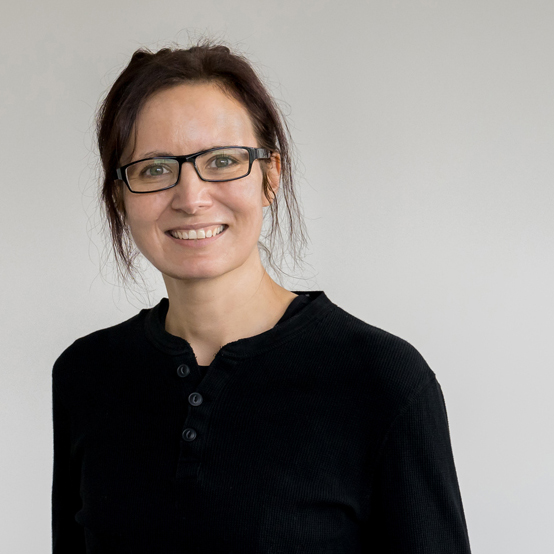 Kate Adamala
Kate Adamala
University of Minnesota
USA
Dr. Kate Adamala is a synthetic biologist and a McKnight Land-Grant Assistant Professor in the Department of Genetics, Cell Biology and Development at the University of Minnesota. Her research interests include astrobiology, synthetic cell engineering and biocomputing. Adamala is a co-founder and steering group member of the international Build-a-Cell Initiative, which seeks to broaden the impact of synthetic cell engineering. Find more information on Adamala’s lab at: http://www.protobiology.org
Programming life that is not alive: biocomputing in synthetic cells
Building a state-of-art ecosystem is pivotal for accelerating biological and health science discoveries and translational science. Such an ecosystem involves several pillars, including technology development, data fairness, scalable and powerful statistical and ML methods and tools, interpretable data analysis, and trustworthy decision-making. Rapid advancements in generative ML have revolutionized data utilization and enabled machines to learn from data more effectively. Statistics, as the science of learning from data while accounting for uncertainty, plays a pivotal role in addressing complex real-world problems and facilitating trustworthy decision-making. Massive multi-modal data have been generated in genomics and health. In this talk, I will discuss the challenges and opportunities in building such an ecosystem that integrates statistics, generative ML, and genomics and health. I will illustrate key points using the analysis of large scale biobanks, whole genome sequencing data, and electronic health records, and demonstrate the power of scientific discovery using ML-generated synthetic data. This talk aims to stimulate proactive and thought-provoking discussions, foster interdisciplinary collaboration, and cultivate open-minded approaches to advance scientific discovery.
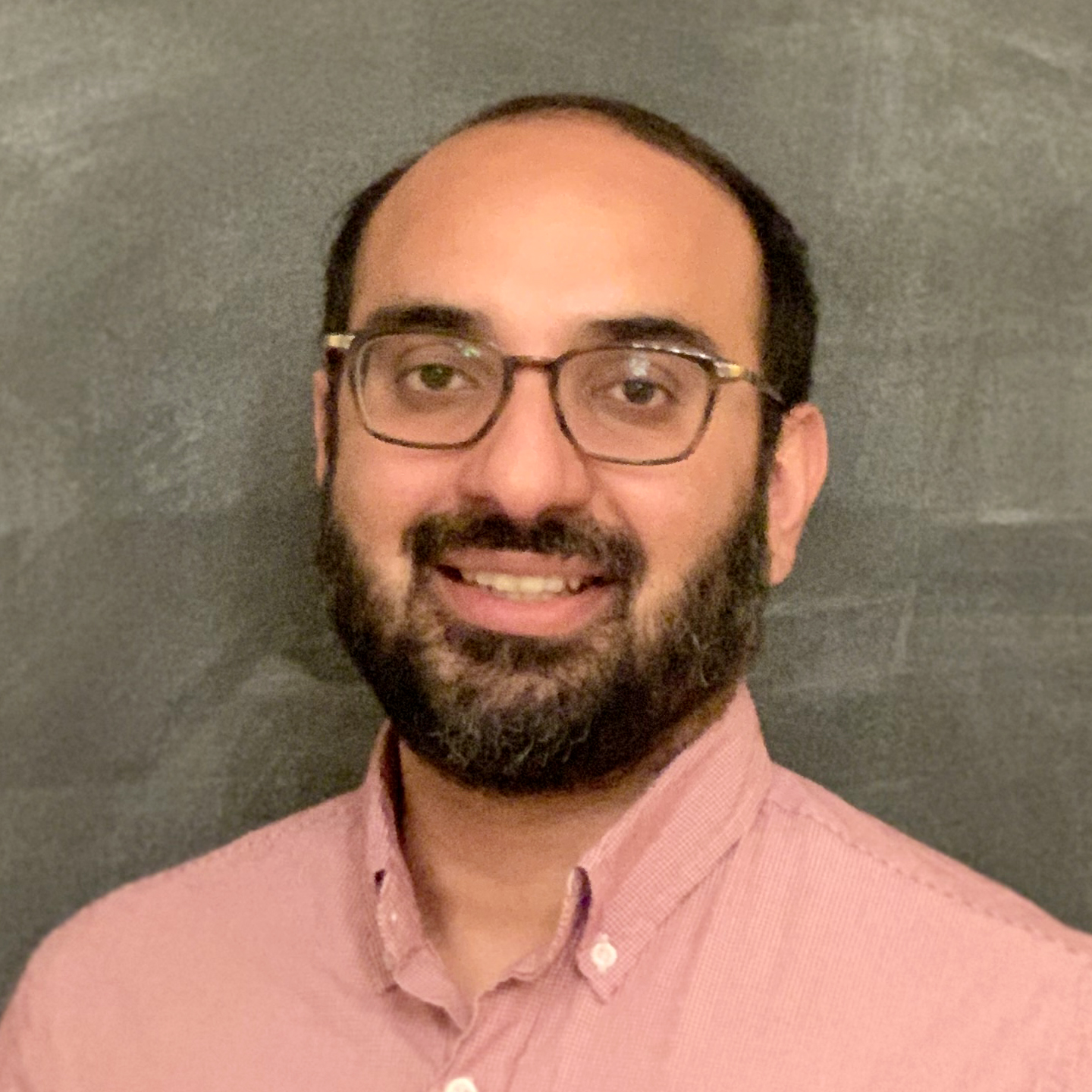 Aly Azeem Khan
Aly Azeem Khan
University of Chicago
USA
Aly A. Khan is an assistant professor at the University of Chicago, with appointments in the Departments of Pathology, Family Medicine, and the college. He develops computational methods to uncover clinically relevant insights about the immune system, translating these into improved diagnostic and therapeutic opportunities for human health. Previously, he was a research faculty member at the Toyota Technological Institute in Chicago, where he established a research program in computational immunology. In addition to his academic research, he has advanced translational science and research at Merck, Genentech, Tempus Labs, and currently 23andMe. Khan earned his Ph.D. in Computational Biology jointly from Cornell University and the Memorial Sloan Kettering Cancer Center. His contributions to computational immunology have been recognized with several honors, notably the National Institutes of Health DP2 NIAID New Innovator Award.
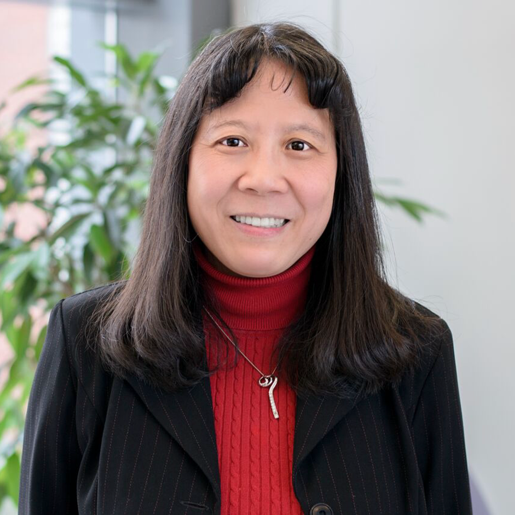 Xihong Lin
Xihong Lin
Harvard University
USA
Xihong Lin is Professor and Former Chair of the Department of Biostatistics, Coordinating Director of the Program in Quantitative Genomics of Harvard TH Chan School of Public Health, and Professor of Statistics at Harvard University, and Associate Member of the Broad Institute of MIT and Harvard. Dr. Lin’s research interests lie in development and application of scalable statistical and computational methods for analysis of massive data from genome, exposome and phenome, such as large scale Whole Genome Sequencing studies, integrative analysis of different types of data, biobanks, as well as analysis of complex epidemiological and observational studies, and statistical learning methods for big data. She is an elected member of the US National Academy of Medicine. Dr. Lin received the 2002 Mortimer Spiegelman Award from the American Public Health Association, the 2006 Presidents’ Award and the 2017 FN David Award from the Committee of Presidents of Statistical Societies (COPSS), and an elected fellow of the American Statistical Association and the Institute of Mathematical Statistics. She is the recipient of the MERIT Award (R37) (2007-2015) and the Outstanding Investigator Award (R35) (2015-2022) from the National Cancer Institute, and the contact PI of the Harvard Analysis Center of the Genome Sequencing Program of the National Human Genome Research Institute. She has been active in COVID-19 research. She chairs the COPSS-National Institute of Statistical Science (NISS) COVID-19 Data Science Webinar series, jointly organized by all the leading North America Statistical Societies. Dr. Lin is the former Chair of the COPSS (2010-2012). She is the founding chair of the US Biostatistics Department Chair Group, and the founding co-chair of the Young Researcher Workshop of East-North American Region (ENAR) of International Biometric Society. She co-launched the Section of Statistical Genetics and Genomics of the American Statistical Association (ASA). She is the former Coordinating Editor of Biometrics, and the founding co-editor of Statistics in Biosciences. She is the former member of the Committee of Applied and Theoretical Statistics of the US National Academy of Science.
Accelerate Discovery by Integrating AI, Statistics and Genomic Health Science
Building a state-of-art ecosystem is pivotal for accelerating biological and health science discoveries and translational science. Such an ecosystem involves several pillars, including technology development, data fairness, scalable and powerful statistical and ML methods and tools, interpretable data analysis, and trustworthy decision-making. Rapid advancements in generative ML have revolutionized data utilization and enabled machines to learn from data more effectively. Statistics, as the science of learning from data while accounting for uncertainty, plays a pivotal role in addressing complex real-world problems and facilitating trustworthy decision-making. Massive multi-modal data have been generated in genomics and health. In this talk, I will discuss the challenges and opportunities in building such an ecosystem that integrates statistics, generative ML, and genomics and health. I will illustrate key points using the analysis of large scale biobanks, whole genome sequencing data, and electronic health records, and demonstrate the power of scientific discovery using ML-generated synthetic data. This talk aims to stimulate proactive and thought-provoking discussions, foster interdisciplinary collaboration, and cultivate open-minded approaches to advance scientific discovery.
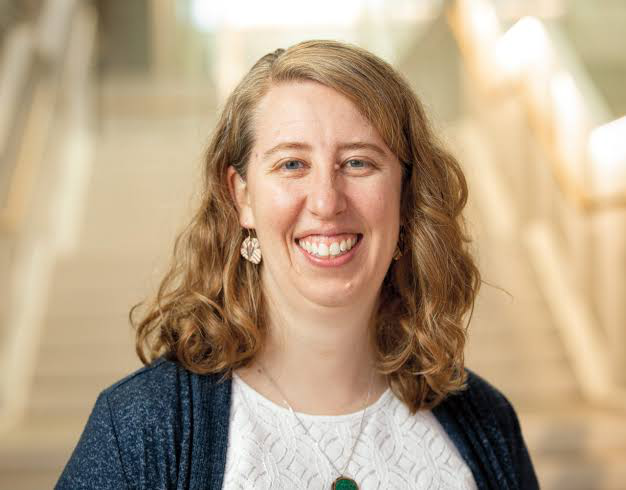 Layla Oesper
Layla Oesper
Carleton College
USA
Layla Oesper is an Associate Professor of Computer Science at Carleton College in Northfield, MN. Dr. Oesper received her B.A. in mathematics from Pomona College and her Sc.M and Ph.D. in Computer Science from Brown University. Dr. Oesper is also the recipient of NSF CRII and CAREER Awards. Her lab focuses on the design of computational methods related to inference and analysis of cancer evolution.
Computational methods for improved inference of tumor evolution
Tumors evolve as part of an evolutionary process where distinct sets of genomic mutations accumulate in different cell lineages descending from an original founder cell. A better understanding of how such tumor lineages evolve over time, which mutations occur together or separately, and in what order these mutations were gained may yield important insight into cancer and how to treat it. Thus, in recent years there has been an increased interest in computationally inferring the evolutionary history of a tumor – that is, a rooted tree where vertices represent populations of cells that have a unique complement of somatic mutations and edges that represent ancestral relationships between these populations. However, accurately inferring these trees from sequencing data is often a challenging process. In this talk, I will describe computational methods that address issues related to the inference and analysis of tumor evolution.
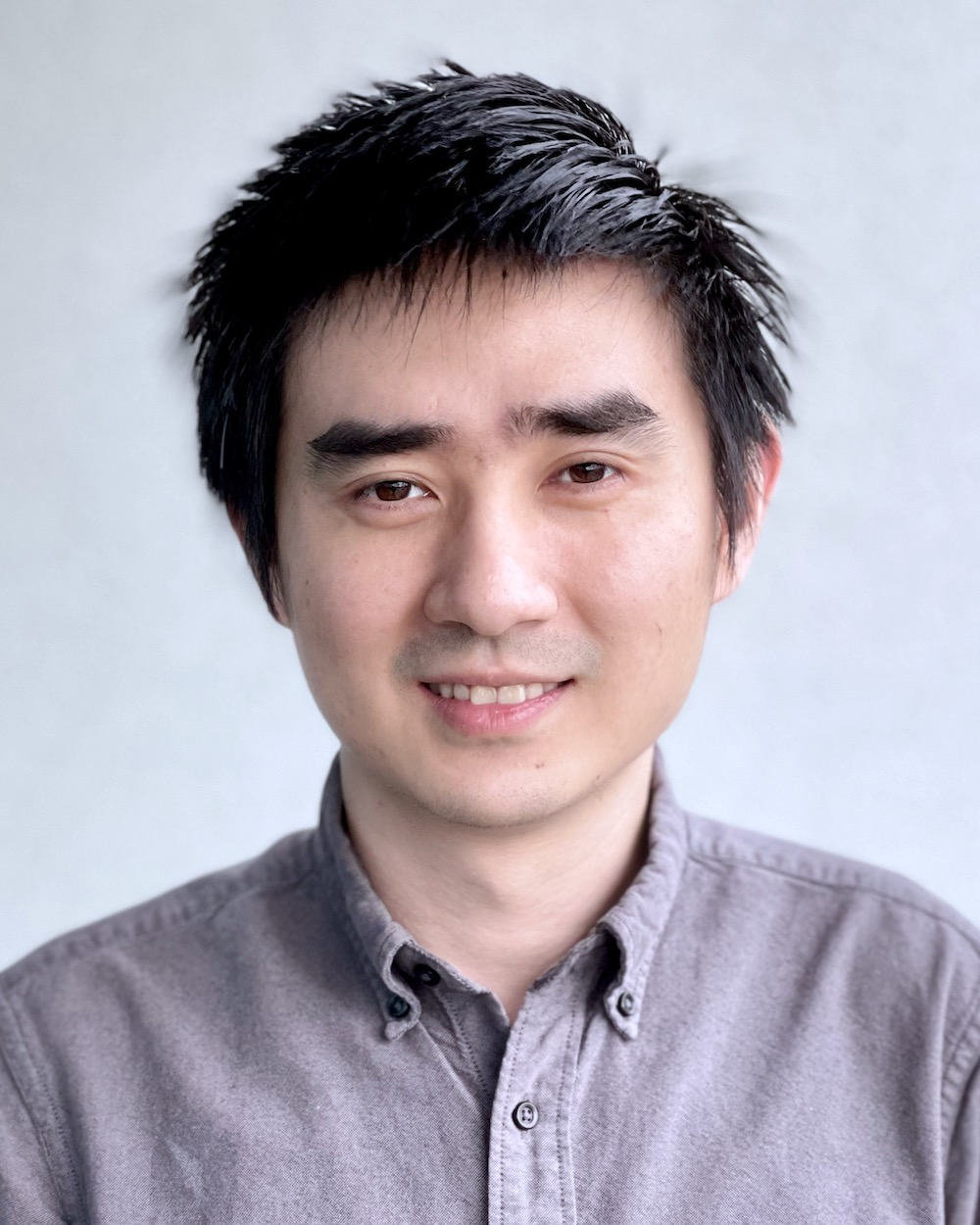 Jian Zhou
Jian Zhou
UT Southwestern Medical Center
USA
Jian Zhou is an Assistant Professor in the Lyda Hill Department of Bioinformatics. He is a Lupe Murchison Foundation Scholar in Medical Research and is a Scholar of the Cancer Prevention and Research Institute of Texas (CPRIT). Prior to joining UTSW, he was a Flatiron Research Fellow at the Center of Computational Biology at Flatiron Institute, New York. He received his B.S. in Biological Sciences from Peking University and Ph.D. in Quantitative and Computational Biology from Princeton University. The Zhou lab works at the intersection of machine learning and genomics. The lab develops computational methods to improve our understanding of genome-based gene regulation and the genetic basis of human diseases. Currently the lab focuses on developing computational methods for improving predictive models for genomic sequence, understanding underlying biological mechanisms, and designing genomic sequences with desired properties. Advancing machine learning and AI methods for science is a long-term goal of the lab. Visit the lab website for more details https://zhoulab.io
Sequence-basis of transcription initiation in the human genome
Transcription initiation is a process that is essential to ensuring the proper function of any gene, yet we still lack a unified understanding of sequence patterns and rules that explain most transcription start sites in the human genome. By predicting transcription initiation at base-pair resolution from sequences with a deep learning–inspired explainable model called Puffin, we show that a small set of simple rules can explain transcription initiation at most human promoters. We identify key sequence patterns that contribute to human promoter activity, each activating transcription with distinct position-specific effects. Furthermore, we explain the sequence basis of bidirectional transcription at promoters, identify the links between promoter sequence and gene expression variation across cell types, and explore the conservation of sequence determinants of transcription initiation across mammalian species.
There will be a series of in-person and virtual tutorials prior to the start of the conference. Tutorial registration fees are shown at: https://www.iscb.org/ismbeccb2025/register#tutorials
In-person Tutorials (All times GMT)
Room: Meridian Ballroom 1&2, Second Floor
Date: May 12, 2025 at 08:00
Organizer:
Karen Sachs
Max Participants: 30
Description
This workshop on causal discovery in biomolecular networks is designed to introduce participants to the principles and methodologies for uncovering causal relationships in biological regulatory networks, from molecular datasets. As the field increasingly relies on large-scale data from genomic, transcriptomic, and proteomic studies, the ability to decipher causal, mechanistic information from these datasets is essential for expanding our understanding of complex biological systems, and for maximally extracting information from multimodal high dimensional datasets.
This workshop will cover foundational concepts of causal modeling, with a focus on causal discovery: inference of the mechanism or structure of the regulatory networks which gave rise to the omics data observed. Participants will gain a clear and firm grasp of the fundamental principles of causal inference, learn about a variety of methods being used in the field, become aware of potential pitfalls and concerns with the techniques, and gain hands-on experience with real datasets. We will discuss practical methods to incorporate literature derived databases such as INDRA and OMNIPATH, to integrate information from these prior knowledge networks into analyses of molecular datasets. In the practice session, we will apply causal discovery methods to elucidate mechanisms underlying biological processes.
Prerequisites
For the practice session, some fundamental knowledge of programming is required.
Attendees can join without participating in the practice session.
For the theoretical portion, some familiarity with probability is helpful but not necessary.
Materials
Attendees will be provided with optional reading materials. Each participant for the practice session is encouraged to bring their own data for the practice session.
Room: Meridian Ballroom 3&4, Second Floor
Date: May 12, 2025 at 08:00
Organizer:
Danielle Stover
Max Participants: 100
Description
This tutorial will focus on the rapidly advancing field of multi-modal modeling for precision medicine, a critical area where artificial intelligence is reshaping the landscape of personalized healthcare. The session will delve into the integration of diverse data types—including genomics, imaging, electronic health records (EHRs), and patient-reported outcomes—to improve diagnosis, treatment, and prognosis in precision medicine.
The research theme centers around how to effectively use AI to combine these disparate data sources into a unified framework, providing deeper insights into patient-specific treatment responses and disease mechanisms. Attendees will learn about the latest advancements in machine learning models (e.g., transformers, graph neural networks) tailored for multimodal data fusion, as well as practical strategies for implementing these models in real-world medical settings.
The session is designed for participants including graduate students, postdoctoral researchers, bioinformatics professionals, clinical data scientists, and industry practitioners. It is especially suitable for those with a foundational understanding of machine learning and a keen interest in advancing their knowledge of AI applications in healthcare.
The tutorial’s timeliness lies in the ongoing explosion of healthcare data and the need for sophisticated AI approaches to manage and leverage this data effectively. The bioinformatics community stands at the forefront of this effort, and the tutorial aims to bridge the gap between cutting-edge AI techniques and their real-world application in precision medicine. This session will empower participants to develop models that can drive more personalized, effective, and efficient patient care.
Prerequisites
A preliminary understanding of python and machine learning
Materials
Attendees are encouraged to plan to bring their laptop if they choose to participate in coding sessions
Room: Meridian Ballroom 1&2, Second Floor
Date: May 12, 2025 at 13:00
Organizer:
Sumaiya Iqbal
Max Participants: 40
Description
This tutorial introduces the Genomics 2 Proteins (G2P) portal, a bioinformatics tool that connects genetic variants with protein sequences and structures, enabling researchers to interpret genomic data in the context of protein function.
Participants will learn to integrate multi-omics datasets – genomics, proteomics, and structural biology – to investigate the structural implications of genetic mutations.
Hands-on sessions will guide participants in navigating G2P modules, mapping genetic variants to structural changes in proteins, visualizing protein features, and using APIs for advanced applications.
Case studies will showcase real-world applications, such as mapping clinical mutations and interpreting base-edited variants.
Prerequisites
Sessions I-III: No prerequisites are required, though familiarity with bioinformatics databases like UniProt, AlphaFoldDB, and structure visualization tools (e.g., PyMOL) is beneficial.
Session IV (Advanced Coding): Basic knowledge of Python or bash/shell scripting is recommended for participants interested in the coding and API components.
Materials
Attendees are expected to bring their own laptops to participate in interactive exercises and follow along with case studies
Room: Meridian Ballroom 3&4, Second Floor
Date: May 12, 2025 at 13:00
Organizer:
Quincy Gu
Max Participants: 100
Description
Artificial Intelligence (AI) has profoundly impacted the field of digital pathology. One innovative AI-driven technology, virtual staining, can convert unstained tissues into stained ones or change one type of stain to another. In clinical diagnostics, hematoxylin and eosin (H&E) stained whole slide images (WSIs) serve as the gold standard for cancer diagnosis, often followed by special staining WSIs, such as immunohistochemistry (IHC) or multiplexed WSIs, to assess patients' genetic mutation status and aid in selecting personalized treatment options. However, the special staining process is time-consuming and requires adjacent tissue samples, making it challenging to directly apply AI models developed for cell segmentation and classification on H&E-stained WSIs to special stained WSIs. Virtual staining, which can digitally convert H&E stained WSIs into other specially stained formats (like IHC or multiplexing), provides an ideal solution for cell segmentation and classification tasks without needing physically stained samples, enhancing single-cell analysis. Due to time constraints and resource limitations, this tutorial will focus solely on deep learning-based methods for cell segmentation and single-cell analysis on multiplexed WSIs.
Prerequisites
The interactive hands-on tutorial will require the internet access for the audience
The audience are highly recommended to bring their laptop to practice in the session with the instructor’s assistance
Material
Python 3.10 version or later installed on their laptop if they prefer to have a more interactive hands-on session with the instructors.
Conference Steering Committee:
Program Committee:
Publication Chair:
Poster Chairs:
Travel Fellowship Chairs:
 GLBIO 2025 will take place in Minneapolis, Minnesota at The Graduate by Hilton Minneapolis hotel. (Please check this page regularly as more details will be added as they are finalized.)
GLBIO 2025 will take place in Minneapolis, Minnesota at The Graduate by Hilton Minneapolis hotel. (Please check this page regularly as more details will be added as they are finalized.)
Address:
615 Washington Ave SE,
Minneapolis, Minnesota,
55414,
USA
Parking Information: https://www.hilton.com/en/hotels/mspgmgu-graduate-minneapolis/hotel-location/
The Graduate by Hilton Minneapolis (at the University of Minnesota campus) is also the conference headquarters hotel!
The Graduate by Hilton in Minneapolis offers a vibrant and stylish stay, located on the University of Minnesota campus. With a blend of academic-inspired décor and modern amenities, it provides a unique atmosphere perfect for visitors seeking both comfort and creativity. The hotel is 100% non-smoking, and offers a fitness center, business meeting rooms, EV charging for guests, and an all-day bar and restaurant. Parking is available for hotel guests at $28/day.
The room rate for conference attendees is $189/day.
Conference attendees and Graduate Hotel guests can also enjoy:
Please use one of the following to book your reservation:
Discounted room rate deadline: Sunday, April 20, 2025
Delta Air Lines is pleased to offer special discounts for ISCB
Please click here to book your flights.
You may also call Conferences and Events® at 1(800)328-1111* Monday–Friday, 8:00 a.m. – 6:30 p.m. (EST) and refer to Meeting Event Code: NM3UP
*Please note there is not a service fee for reservations booked and ticketed via our reservation
800 number.
When booking a flight to Minneapolis with United be sure to use the following discount code ZQ6Q218926
Links within this page: Sponsors | Funding Information | Application Overview | Key Dates | Maximum Awards and Amounts | Eligibility Requirements | Application Process | Eligible Expenses | Notification | Contacts
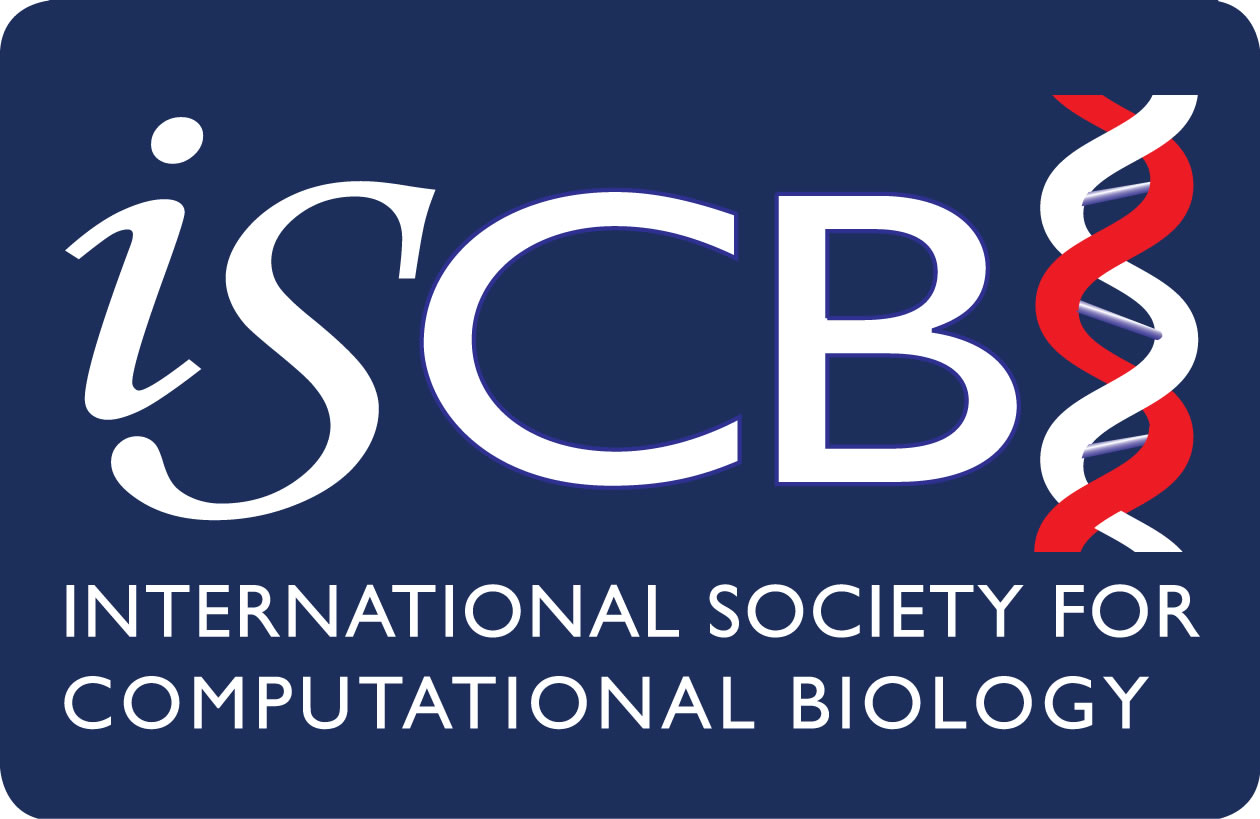
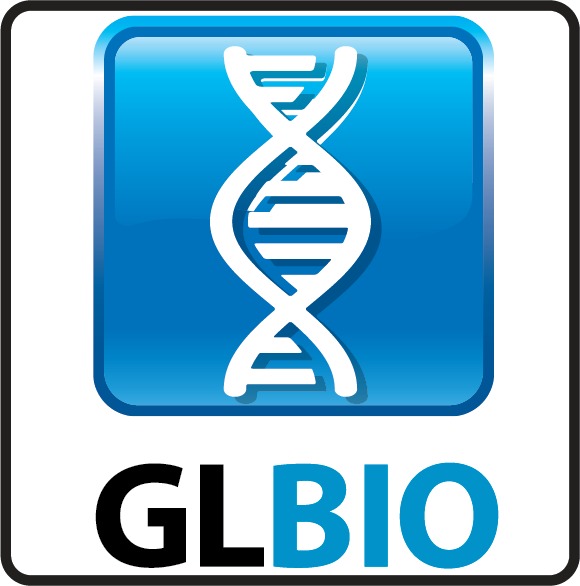
ISCB, through funding provided by the International Society for Computational Biology, the Great Lakes Bioinformatics Consortium, and the Center for Machine Learning and Health are pleased to offer travel fellowships for students to attend GLBIO. Students from the United States, Canada, and other countries are encouraged to apply but funding sources for Travel Fellowships are limited and we regret that we are not able to fund all applicants. The conference organizers are committed to providing support to as many eligible applicants as possible. Travel Fellowship consideration is based on criteria listed below.
| March 24, 2025 | Travel Fellowship Application Deadline (11pm Eastern Daylight Time) |
| March 28, 2025 | Travel Fellowship Acceptance Notification |
| April 11, 2025 | Early Registration Code Deadline (11:00 pm Eastern Daylight Time) |
Fellowship award amounts will depend on the source of funding. Some sources will provide the exact amount of registration. For others the amount will be a maximum of $500 USD. Please note that funded applicants will only be able to cover approximately 50% of the expense of travel and registration fees with these fellowship amounts. Thus all applicants must seek and secure additional funding sources (e.g., from your home institution/university, or grant funding) and a letter regarding this additional funding is required in PDF format as part of your application.
No application will be accepted after the deadline of March 24, 2025. Special consideration will be given to first-time GLBIO attendees who are not necessarily presenting work at the conference, women, undergraduate or high school students, underrepresented minorities, or students with disabilities.
Eligible expenses toward travel fellowship funds include conference registration, transportation (air on a U.S. Flag air carrier or land transportation from home region to conference city), and a maximum of 250 USD of hotel room and occupancy tax charges. In order to receive the full-awarded amount, receipts for registration, transportation and hotel accommodations are required that equal or exceed the awarded amount. Conference registration fee is reimbursable at the early registration pricing only; registration fees to attend pre-conference events are not reimbursable expenses.
Applicants will be notified no later than March 28, 2025 of the funding status. In some cases applicants may be notified they are on a waitlist for funding. Any waitlisted applicant that is eventually awarded funds will be offered the opportunity to register at the early registration rate, therefore, please do not register for the conference if your attendance is fully dependent on being awarded a travel fellowship as any cancellation of an applicant's registration will be subject to the full regular registration cancellation policy.
Funded applicants will be required to present evidence of their eligibility status (such as student identification card) when signing in daily to record their attendance. In all cases, funds will be mailed to funded applicants after the conference per the details noted in Eligibility Requirements above.
Questions regarding travel fellowships should be addressed to: This email address is being protected from spambots. You need JavaScript enabled to view it.
The information on this page is subject to change without notice, and all changed information will be considered final for the purposes of awarding and funding GLBIO Travel Fellowships.
Q: What is ISCB?
A: The International Society for Computational Biology (ISCB) is the parent organization of the annual Great Lakes Bioinformatics (GLBIO) Conference. The ISCB is dedicated to advancing the scientific understanding of living systems through computation. The ISCB communicates the significance of our science to the larger scientific community, governments, and the public at large. The ISCB serves a global membership by impacting government and scientific policies, providing high quality publications and meetings, and through distribution of valuable information about training, education, employment and relevant news from related fields. ISCB membership offers many benefits including reduced conference registration fees to several high impact events and reduced subscription prices for a selection of journals of Computational Biology and Bioinformatics. Members are from more than 50 countries and include over 800 students and nearly 500 post doctoral researchers.
Q: Who do I contact for information on the conference?
A: You can get information on the conference from:
Bel Hanson
ISCB Director of Operations & Programs
Phone: +1-571-293-2113
Email: This email address is being protected from spambots. You need JavaScript enabled to view it.
Justine Morris
ISCB Coordinator of Operations & Programs
Phone: +1-571-293-2113
Email: This email address is being protected from spambots. You need JavaScript enabled to view it.
Q: Where will the conference be held?
A: The conference will be held at The Graduate by Hilton Minneapolis at the University of Minneapolis in Minneapolis, Minnesota. All programming will occur on the 2nd floor.
Address:
615 Washington Ave SE,
Minneapolis, Minnesota,
55414,
USA
Click here for the Google map view!
Q: Is there a map of the venue?
A: The entire conference is taking place within The Graduate Hotel. You can click here for a PDF of the event space floor at the hotel, or click here for a 3D model view or here for 360° photos of the hotel spaces. To view which rooms will hold which programming, you can find the floor maps here.
If you decide to visit the UMN campus, you can find interactive maps here. There is also an extensive PDF map here.
Q: Will I be able to present virtually?
A: For a variety of reasons, ISCB strongly prefers that scientific research accepted for oral presentation be presented in-person at the conference venue. Nevertheless, we understand that some presenters will be unable to attend the conference in person.
ISCB will grant remote presentation options for reasons associated with:
If your research is accepted for oral presentation and you are unable to present in person, ISCB requires notification at the time of acceptance and no later than Monday, April 14, 2025.
You will be asked during your confirmation of participation to confirm your in-person participation. If you are unable to participate in person, you will need to request a waiver by writing to This email address is being protected from spambots. You need JavaScript enabled to view it.
Q: What Hotel is being used for the conference?
A: The conference accommodation is The Graduate Hotel.
Address:
615 Washington Ave SE,
Minneapolis, Minnesota,
55414,
USA
For details visit this link.
Q: Are Children allowed at the conference?
A: ISCB conferences are professional events. Children of registered ISCB conference attendees are welcome to attend the conference with their parent or guardian, as long as younger children are under the supervision of a parent or guardian at all times. Parents or guardians may bring children to educational events provided the child does not disrupt the event.
Q: Will child care be available?
A: Details coming soon.
Q: How do I get from the airport to my hotel? How can I travel around the city?
A: The Graduate Hotel (and the University of Minnesota campus) is a short trip from Minneapolis/St. Paul International airport (MSP).
Rideshare: Lyft and Uber are popular rideshare options in Minneapolis. Whichever app you choose should provide instructions on where to meet your driver, but here are a few hints:
Terminal 1 Pick-up Point: In the airport, follow signs for baggage claim/ground transportation. Once at the baggage claim level, follow signs for “app-based ride service." This will lead you to Level 2 of the Green Parking Ramp. Pickup will occur at either Zone A or Zone B. Note: These zones are right next to each other, but different door entrances.
Terminal 2 Pick-up Point: In the airport, follow signs to the arrivals level, then look for the app-based ride services signs. Pick-up will be across the street at the Ground Transport Center, on the ground level of the Purple Parking Ramp.
Taxi: To catch a taxi or shuttle at the airport, follow signs to the Ground Transportation Center one level below baggage claim. A taxi directly to campus or The Graduate Hotel from the airport will take approximately 20-30 minutes, depending upon traffic.
Light Rail: Light Rail Service, a less expensive alternative to taking a tax, is also available as a form of travel from the airport to the UMN campus. The trip between the airport and the University via the Light Rail takes about 45 minutes. From the airport, take the blue line from either Terminal 1 or 2 to the US Bank Stadium station. There, transfer to the green line heading east to campus. The final stop on the green line will be the East Bank station, a half block from The Graduate Hotel.
All options above are also great ways to get around the city!
Q: Is parking available at the hotel?
A: The Graduate has on-site parking for hotel guests. On-site parking is $28/day.
Q: What attractions and sightseeing opportunities are available?
A: There is so much to do in Minneapolis in the spring! The City of Minneapolis’s website has a great collection of things to do in the city no matter when you’re visiting.
The month of May will be peak springtime in the city, so be sure to check out the seasonal suggestions for things to do here, and check back regularly as the GLBIO 2025 conference approaches for the most up-to-date goings on!
You can check what’ll be happening in Minneapolis through the events calendar or download a free PDF of the official Minneapolis Visitor Guide at this link.
If you’re a golfer, you can also stay right in The Graduate and rent a hitting bat at their in-house, hotel exclusive Topgolf Swing Suite!
Q: What restaurants are close to the venue or my hotel?
A: The Graduate has an in-house restaurant, The Beacon Public House, open every day from 7am to 9pm. You can find more info or make a reservation here.
You can also find great restaurant options here. When you scroll down the page, you will see multiple category options for restaurants to be found in Minneapolis, including places for brunch, fine dining, kid-friendly restaurants, and unique experiences!
Q: Are there any special discounts available for attendees?
A: Yes! We have a discounted block of rooms at The Graduate Hotel. Visit the conference Venue and Accommodation page to book your room and take advantage of the discounted rate!
Q: What is the local Time Zone?
A: Minneapolis, Minnesota is in the Central time zone. During May, Minneapolis is in Central Daylight Time (CDT). This is UTC/GMT -5 hours.
Q: What is the climate?
A: The month of May in Minneapolis averages 64°F (15°C), with an average low temperature of 54°F (10°C) and an average high temperature of 73°F (21°C). Attendees should consider bringing a light jacket or raincoat in case of cooler days or spring rain showers.
Q: Where can I find medical or emergency information?
A: If you are in need of emergency assistance, call 911 immediately.
If you visit the UMN campus and need emergency assistance, use the Code Blue Emergency Phones for instant two-way communication with the University Police. You can call 612-624-2677 to find out the location of these phones. You can also reach the University Police at 612-624-3550.
Q: How can I pay to register?
A: Delegates can pay online during registration using a Visa, MasterCard, or American Express credit card. Delegates wishing to pay using a wire transfer will select “pay by wire” on the Additional Options page and the Payment page during registration to create an invoice. Wire transfer information will be found on the summary page once registration is complete, as well as at the bottom of the PDF of your invoice.
Please take note of the following important dates as pertains to registration payments:
Q: Where do I register when I arrive?
A: Conference Registration is available for the duration of the conference, May 12th to May 15th, at The Graduate Hotel, Level 2 foyer.
Watch for signage!
REGISTRATION DESK HOURS – May 12 – 15
Monday, May 12 — 7:30 AM – 5:00 PM
Tuesday, May 13 — 8:00 AM – 6:00 PM
Wednesday, May 14 — 8:00 AM – 6:00 PM
Thursday, May 15 — 8:00 AM – 3:30 PM
Q: What should I do if I lose something at the conference venue?
A: A conference lost and found will be located at the registration desk on the second floor. Otherwise, you can check with hotel staff at the front desk of The Graduate Hotel.
Q: What is the policy of photography or image capture?
A: ISCB encourages open sharing of science. As an author, you have the right to restrict the use of photography or any other form of capture of your research. If you do not wish to allow others to share your research, simply disclose this at the start of your oral presentation or add a note to your poster.
Q: What are the hashtags for the conference?
A: The hashtag is #GLBIO or #GLBIO2025.
@ISCB is the ISCB Twitter/X handle.
@iscbnews is the ISCB Instagram handle.
We encourage the use of Twitter/X at the conference to disseminate information. ISCB kindly requests that you observe the Conference Code of Conduct when tweeting. If you have a specific complaint, suggestion, or comment related to conference logistics, audio, heating and cooling, bathroom cleanliness, etc, we kindly request that you communicate your wish to a volunteer wearing an ISCB shirt, go to the conference registration desk, or an ISCB team member. Due to limited resources and the demands of managing the conference ISCB is unable to monitor Twitter/X fully and may miss an improvement request.
ISCB Members enjoy discounts on conference registration (up to $150), journal subscriptions, book (25% off), and job center postings (free).
Connecting, Collaborating, Training, the Lifeblood of Science. ISCB, the professional society for computational biology!
Giving never felt so good! Considering donating today.